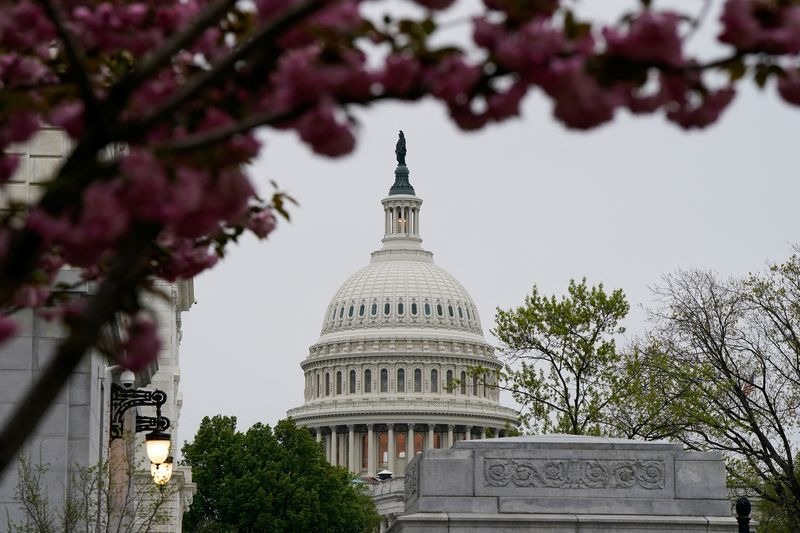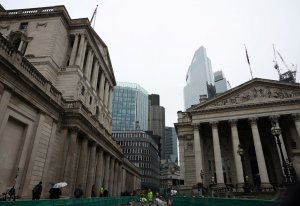The U.S. budget deficit for the current fiscal year is expected to narrow modestly compared to 2024, thanks in part to an expected uptick in tariff revenues and spring tax collections, according to analysts at Wells Fargo.
In a note to clients, the analysts led by Michael Pugliese predicted that the federal budget deficit -- which occurs when the government spends more than what it receives from revenues -- will come in at $1.70 trillion. This would be slightly narrower than the $1.83 trillion logged in 2024.
Earlier this month, U.S. President Donald Trump unveiled punishing tariffs on both friends and adversaries alike, partly arguing that the move is necessary to help boost government coffers.
Trump has since partially paused these elevated duties on many countries for 90 days, during which time Washington is aiming to secure dozens of trade deals with individual nations. The White House has also announced temporary exemptions for some tech products like smartphones and computers.
However, the Trump administration has moved to make China the central target of an intensifying trade war, slapping tariffs of up to 145% on the world’s second-largest economy. Beijing has responded with 125% tariffs on U.S. imports, exacerbating worries of an intensifying trade war.
A 10% universal levy and separate import taxes on items like aluminum, steel and autos remain in effect as well.
"[C]ustoms receipts have not yet surged despite the imposition of major new tariffs by the Trump administration," the Wells Fargo analysts noted.
"That said, we think this is simply a timing issue, and we expect tariff revenues to rise dramatically in the coming months."
They estimated that new tariff revenue will climb to $20 billion per month starting in May, up from about $7 billion per month collected in 2024.
Economists have warned that the tariffs could weigh on fuel inflationary pressures in the U.S. and weigh on broader economic activity, while businesses have flagged that the levies are making it difficult to plan out future investment decisions.
The Wells Fargo analysts said they expect the federal budget deficit to widen to $2.0 trillion next year, or about 6.4% of domestic output, partially citing a "weaker U.S. economy." Proposed tax cuts and spending increases to some parts of the federal government are also seen only partially offsetting plans to slash outlays in other programs, they added.













